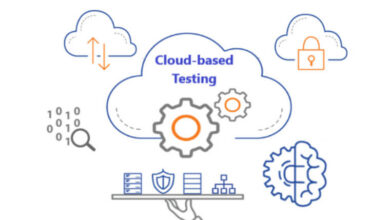4 Factors to Consider Before Migrating Your QuickBooks Enterprise to the Cloud

QuickBooks Enterprise is an accounting solution designed to help businesses manage their finances and operations more efficiently. It provides powerful tools for tracking expenses, creating invoices and managing payroll.
The latest version of QuickBooks Enterprise also offers cloud-based services, allowing businesses to access their data from anywhere at any time.
Cloud-computing is becoming increasingly popular among businesses due to its cost savings and scalability. Moving QuickBooks Enterprise to the cloud can provide numerous benefits such as increased security, better collaboration, improved scalability and more efficient data management.
With QuickBooks Enterprise in the cloud, businesses can easily access all their financial data from any device with internet access. This makes it easier for them to make informed decisions quickly and accurately.
Assessing Your Business Requirements & Understanding Your Needs
Moving your QuickBooks accounting software to the cloud can be a daunting task. It requires careful assessment of your business requirements and understanding of the needs of your organization.
Before taking the plunge, it is important to understand the benefits and advantages of moving QuickBooks to the cloud. These include better collaboration, cost-effectiveness, and scalability.
Factors to Consider Before Moving Your QuickBooks Enterprise to the cloud
Migrating your QuickBooks Enterprise to the cloud can be a daunting task. It is important to consider all the factors involved before taking this big step.
In this article, we will discuss 4 important factors that you need to consider before migrating your QuickBooks Enterprise to the cloud. We will look at how you can move your QB Enterprise to the cloud and what considerations should be taken into account when doing so.
By understanding these are important factors, you can make sure that your QB Enterprise migration goes as smoothly as possible.
Factor 1: Understand the Different Types of Cloud Platforms
Cloud-computing is becoming a more common approach for businesses looking to improve their IT operations. It enables them to access information more quickly, reduce costs associated with hardware and software, and increase scalability. Understanding the different types of cloud platforms available can help you determine which one best suits your organization’s needs.
Software as a Service (SaaS) is one of the most popular forms of cloud-computing. It provides users with access to applications hosted on remote servers without requiring them to deploy or manage any hardware or software on-premise. Examples include email hosting services and web-based office suites such as Google Drive and Microsoft Office 365.
Infrastructure as a Service (IaaS) is a service that allows an organization to use virtual machines instead of owning them. It also allows an organization to rent storage and networking components.
Factor 2: Assess Your Current Data Storage Requirements and Capacity
Having the right data storage capacity can be a challenge for any business. When it comes to storing valuable files, documents and information, it is important to make sure you have the right capacity in place.
Assessing your current data storage requirements and capacity is a critical step toward ensuring that your business remains secure and compliant with industry regulations.
Data security should always be top of mind when assessing how much storage capacity you need. Having too little or too much can both create problems—too little will not provide adequate space for all of your data while having too much could lead to unnecessary costs and potential vulnerabilities if not managed properly.
In addition, making sure that the solution you select has strong security protocols in place will help safeguard sensitive information from malicious attacks.
Factor 3: Evaluate Your Network Performance & Security Features
Nowadays, small business owners need to ensure that their networks are secure and running smoothly. QuickBooks Enterprise Hosting makes it easy to evaluate the performance and security features of your network.
This service allows you to monitor network performance in real time, providing a detailed analysis of usage, latency issues, and more. Additionally, QuickBooks Enterprise Hosting provides a variety of security protocols to protect your data from potential threats.
With this service, you can assess your current network performance and make adjustments as needed. You’ll be able to identify any underlying issues or areas for improvement quickly and efficiently.
Furthermore, with the advanced security protocols offered by QuickBooks Enterprise Hosting you can rest assured knowing that your sensitive information is protected from malicious actors.
Factor 4: Identify Potential Cost Savings from Moving to the Cloud
The shift to cloud-computing is a strategic decision for businesses of all sizes. With QuickBooks Enterprise (QBE), moving to the cloud can offer substantial cost savings and improved ROI.
Understanding the potential cost savings associated with migrating QBE to the cloud will help organizations make an informed decision that aligns with their budget needs.
Migrating QBE to the cloud eliminates hardware costs, as well as the need for external IT support. By using the power of cloud-computing, companies no longer need to pay expensive software updates, equipment maintenance, or additional licenses; instead, they can use the money to help other parts of their business.
Moreover, with reduced downtime due to server malfunctions and fewer IT service disturbances, businesses also experience increased productivity from their workforce.









